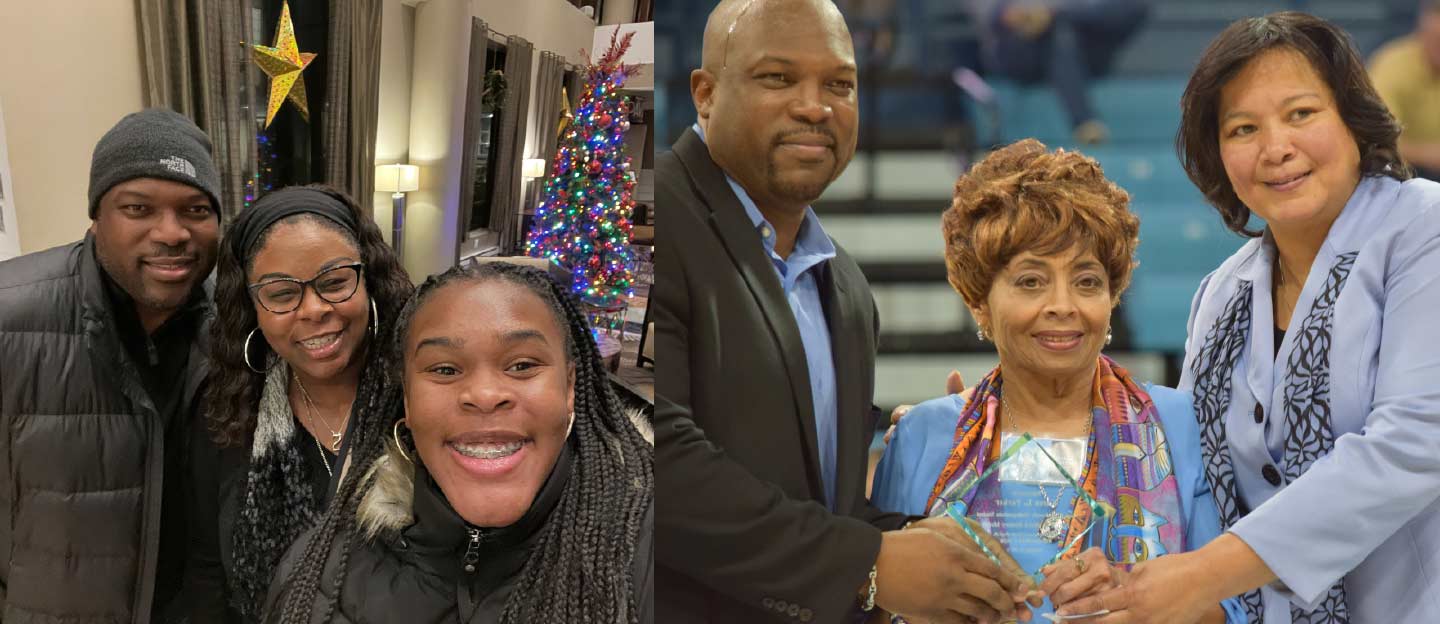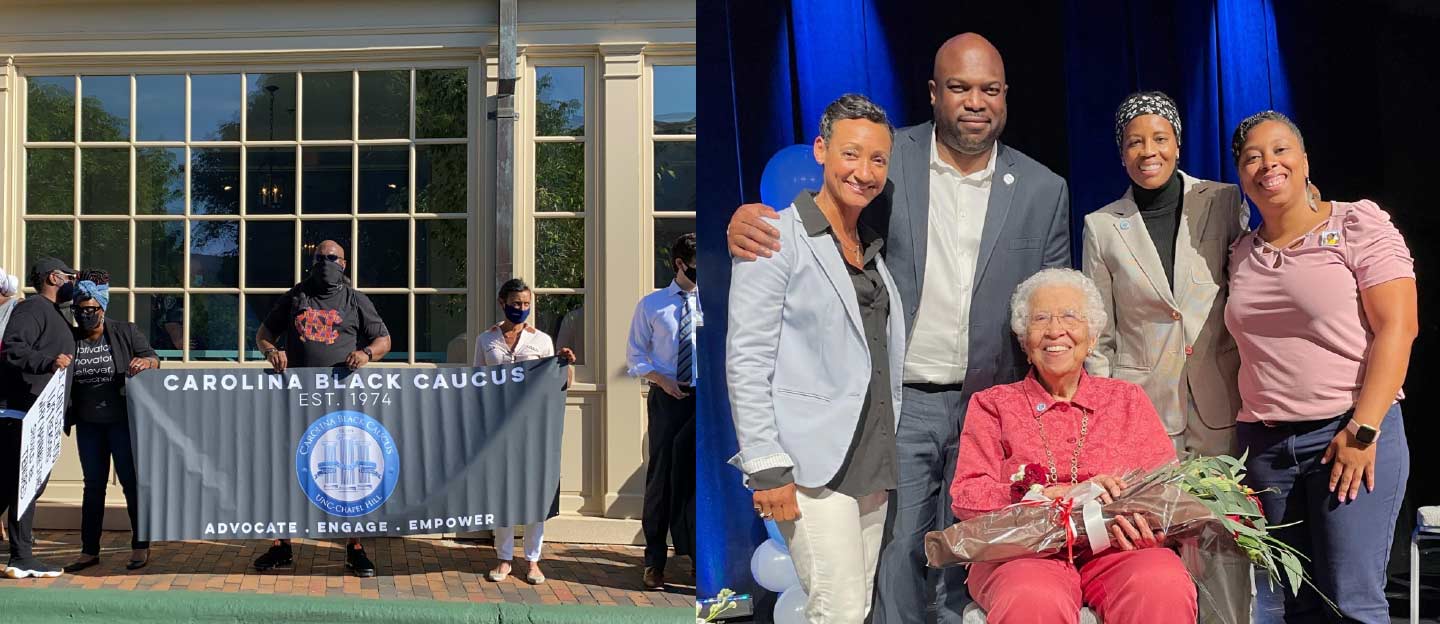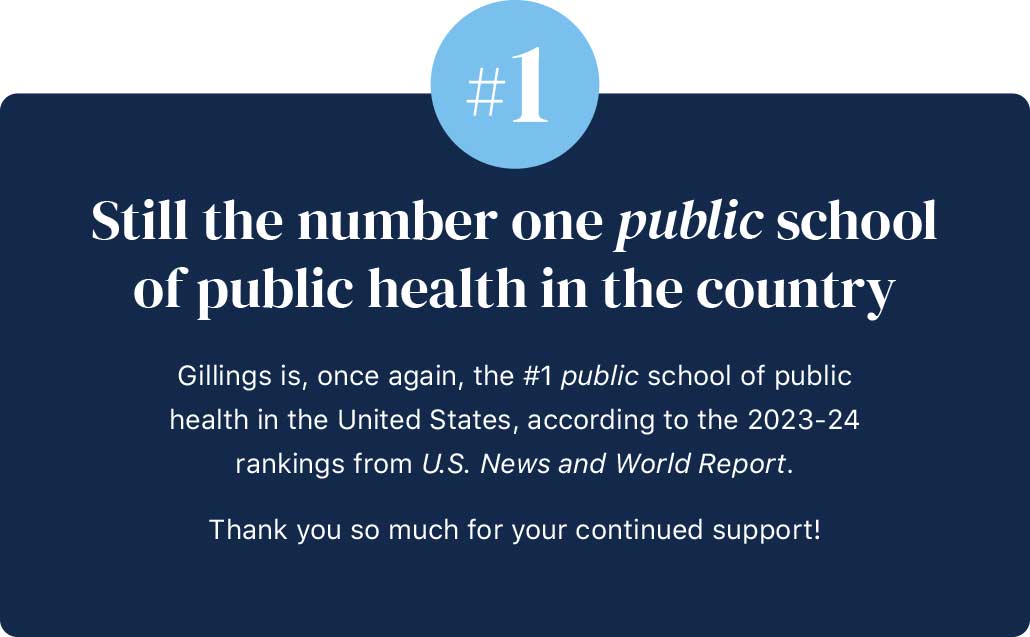McGhee is a leader in social justice, inclusive technology and equity promotion at the Gillings School, dedicated to advancing peers and students, with awards for his work.
McGhee’s personal motto is the quote from activist and author James Baldwin: “Not everything that is faced can be changed, but nothing can be changed until it is faced.” In his 22 years working at Gillings, McGhee has been a force for change, both at the School and beyond the Chapel Hill community.
O.J. McGhee, MA, is an associate director for the School’s Instructional Media Services and End-User Support teams. Since his arrival at Gillings, he has been the mastermind behind the production of the School’s annual Minority Health Conference keynote broadcast and the National Health Equity Research Webcast. McGhee’s also been heavily involved in efforts to promote a culture of inclusiveness throughout campus.
“O.J. is genuine — genuinely dedicated to doing good,” says Vic Schoenbach, PhD, epidemiology professor emeritus who helped initiate the Minority Health Conference Keynote broadcasts and later worked closely with McGhee on them. “The more I worked with him, the more I realized that his technical knowledge, judgment and people skills were way better than mine. His dedication to the conference broadcasts’ success led him to go many extra miles on our behalf.”
Going the extra mile comes naturally to McGhee, whose first name is Onegaa (mwan-ga), a Swahili pronunciation that means to “shine a light.” He earned a bachelor’s in mass media arts from Clark Atlanta University, where he played football and worked at the school’s TV station. He won a public broadcasting fellowship to Ohio University for a master’s in telecommunications management and is pursuing a doctoral degree in educational leadership from UNC Wilmington. His career has included jobs at Black Entertainment Television, the Black College Satellite Network as well as Florida A&M University, and adjunct professorships at Morgan State and NC State Universities.

Left: O.J. McGhee with his wife, Kimberly, and their daughter, Kyla. Right: McGhee and former assistant basketball coach Tracey Williams-Johnson present Karen Parker (the first African American woman to graduate from UNC) with an award during the 2017 Black History Month Tribute game.
After arriving at UNC in 2001, McGhee got involved on campus in various ways, such as coaching club football, PA announcer for the women’s basketball team and joining the Campus Safety Commission. His most visible role has been as a leader of the Carolina Black Caucus, which has promoted, advocated and celebrated UNC Black faculty and staff since 1974.
McGhee was on its executive committee for nearly a decade and served as chair from 2015-2018, a time when conversations about race in America were intensifying. Among his achievements as chair were working with local leaders to install a grave marker in the Old Chapel Hill Cemetery in remembrance of the 361 unmarked African American graves there and petitioning for the removal of the confederate statue “Silent Sam” from McCorkle Place.
“Because of his unwavering and genuine concern for the advancement of his peers and students alike, I could not think of a more fitting individual to carry the banner of leader for the Carolina Black Caucus,” says DeVetta Holman-Copeland, PhD, UNC’s Coordinator of Resiliency and Student Success and a caucus executive committee member. “His determination is relentless, but it is O.J.’s kind spirit that leaves such a lasting impression. He is a full-circle, inclusive, servant leader committed to the growth of people and their communities.”

Left: Protesting at the NC Board of Governors meeting over the Nikole Hannah Jones tenure controversy. Right: Past Carolina Black Caucus Chairs with Hortense McClinton (first Black faculty member at UNC) at the renaming ceremony of the McClinton & Henry Owl residential halls.
McGhee’s work in social justice started early. Growing up in southeast Washington, D.C., he accompanied his mother to Union Temple Baptist Church, which was active in the Black liberation movement. He remembers participating in protests against apartheid at the South African Embassy and marches to observe Dr. Martin Luther King Jr.’s birthday as a federal holiday.
“I was involved in those kinds of activities early on in life,” says McGhee, who lives in Raleigh with his wife, Kimberly. Their daughter, Kyla, is a freshman journalism student at Carolina. “At first I was a foot soldier and then began taking on more leadership roles.”
His leadership has led to multiple awards recognizing his excellence in technology and in working toward a more inclusive campus, including the University’s 2019 Staff Diversity Award, the Black Alumni Reunion’s Hortense McClinton Staff Award and the UNC IT Team Award. But one of the biggest rewards for McGhee is to work at a School that aims to promote equity and humanity.
“Being in this environment — in terms of what public health is and stands for — is one of the reasons I really enjoy working at Gillings,” McGhee says. “The faculty, staff and students all exemplify what I think we as a society should be working toward.”





